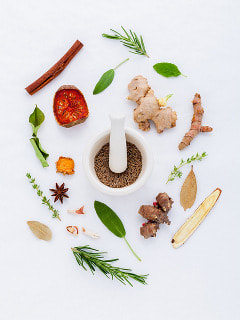 Written by Bob Quinn, DAOM, LAc I have a few patients who will not take any Chinese herbs, simply on the basis of safety concerns. Are these safety concerns reasonable? They cite a recent death in the US due to the consumption of unprocessed aconite (a Chinese herb that professionally is always used in the safer “processed” form), concerns over environmental degradation in China, articles in the popular press about Chinese people with financial resources buying much of their food from foreign countries due to perceived corruption in the food safety system in China, earlier articles about hidden drugs in Chinese patent medicines, and so on. For patients who are well informed, there are legitimate concerns to be allayed. And they can be if the time is taken to learn about the natural products industry. It is true that environmental degradation in China has had an impact on herb quality. There can be no doubt of that. I have many years experience being involved in importing Chinese herb extracts, and the big concern is heavy metals, likely attributable to industrial pollution. Pesticide-herbicide residues were generally not a problem that I encountered—with the exception of fungicide residues on ginseng, but China has mostly dealt with that now. But once the air and water are so polluted, as it is in many Chinese cities, it is impossible to keep the rain from carrying those pollutants down into the herb fields, often many hundreds of miles away. Believe it or not the main way to deal with this problem in Chinese herb manufacturing plants is by thoroughly washing the plants again and again and again before processing them into extracts. If heavy metals are still a problem after that, there are more costly ways of removing them. Even with all that, in my earlier experience, we would still occasionally have to reject some imported Chinese material because it exceeded US heavy metal limits. This was not often. Note that our systems on this side of the ocean are completely capable of catching problems before they end up in products sold to the public (our patients). Heavy metal testing is done routinely and effectively in hundreds of labs across the US. These testing protocols are all harmonized and totally trustworthy; luckily this test is quite inexpensive, meaning companies of all sizes can easily absorb the cost of testing. The same is true of testing for pesticide and herbicide residues. A company can test for literally hundreds of these residues for an affordable cost. The safety record of the professional side of Chinese herbal medicine is an admirable one, especially when compared to the safety of prescribed medications. Iatrogenic disease is after all one of the leading causes of death in the US. No survey of the Chinese medicine field to my knowledge has shown our professional lines to EVER include hidden drugs. Where this practice has been observed, it has always been in non-GMP products, mostly ones sold in Chinatown shops. GMP refers to “Good Manufacturing Practices.” GMP designation is given to a factory after an auditing visit by an accredited external agency, such as the Australian TGA (Therapeutic Goods Administration) or others based here in the US. These visits are rigorous and look at all stages of manufacture from procurement to preprocessing storage, to manufacture, and post-manufacture handling, packing and storage. Additionally the US FDA has in recent years visited many Chinese manufacturing facilities on official inspections. As a result we can have solid faith in the products that come from these GMP companies—and this means all of our most trusted professional lines available in acupuncture offices across the US. Many people are unaware that Chinese herb and natural product manufacturers now dominate the world market, and perhaps if so informed it might give them a little more confidence in our products. Many of the ingredients you likely thought would come from Europe or South America, now come primarily from China, e.g., milk thistle, echinacea, many vitamins and so on. Because of all these foreign sales Chinese manufacturers have ample capital to invest in the very best manufacturing equipment. The Chinese government has helped with additional investment. As a result Chinese herb manufacturing plants are among the best in the world. It has been many years now (maybe 20 or so) since the Chinese government drove many small producers out of business, because they were not able to invest in the most modern equipment so as to meet global safety concerns. This was not an easy policy to implement, as it put many companies out of business. Now Chinese manufacturers have been among the best—along with Japanese, German, French, and Italian companies. This is the conversation that we need to have with our patients. Systems have been put in place for the products sold through the offices of Chinese medicine professionals. Where a patient is at risk is when they go into herb shops where it might be possible to buy non-GMP products (most products in natural food stores are also GMP-certified, but not all)—these products would be the ones likely to have unallowable levels of heavy metals and possibly hidden drugs. It is safest to purchase through the offices of professionals where only GMP products are carried. Bob Quinn is one of the owner-founders of Onkodo Clinic. He is also a full-time Assistant Professor in the School of Classical Chinese Medicine at NUNM. In the past he was the Marketing Manager for China Herbs and Natural Products International Corp. and co-founder of People’s Herbs, a professional supply company.
0 Comments
Leave a Reply. |
Authors
Blog posts are written by Onkodo practitioners. Archives
November 2020
Categories |
 RSS Feed
RSS Feed